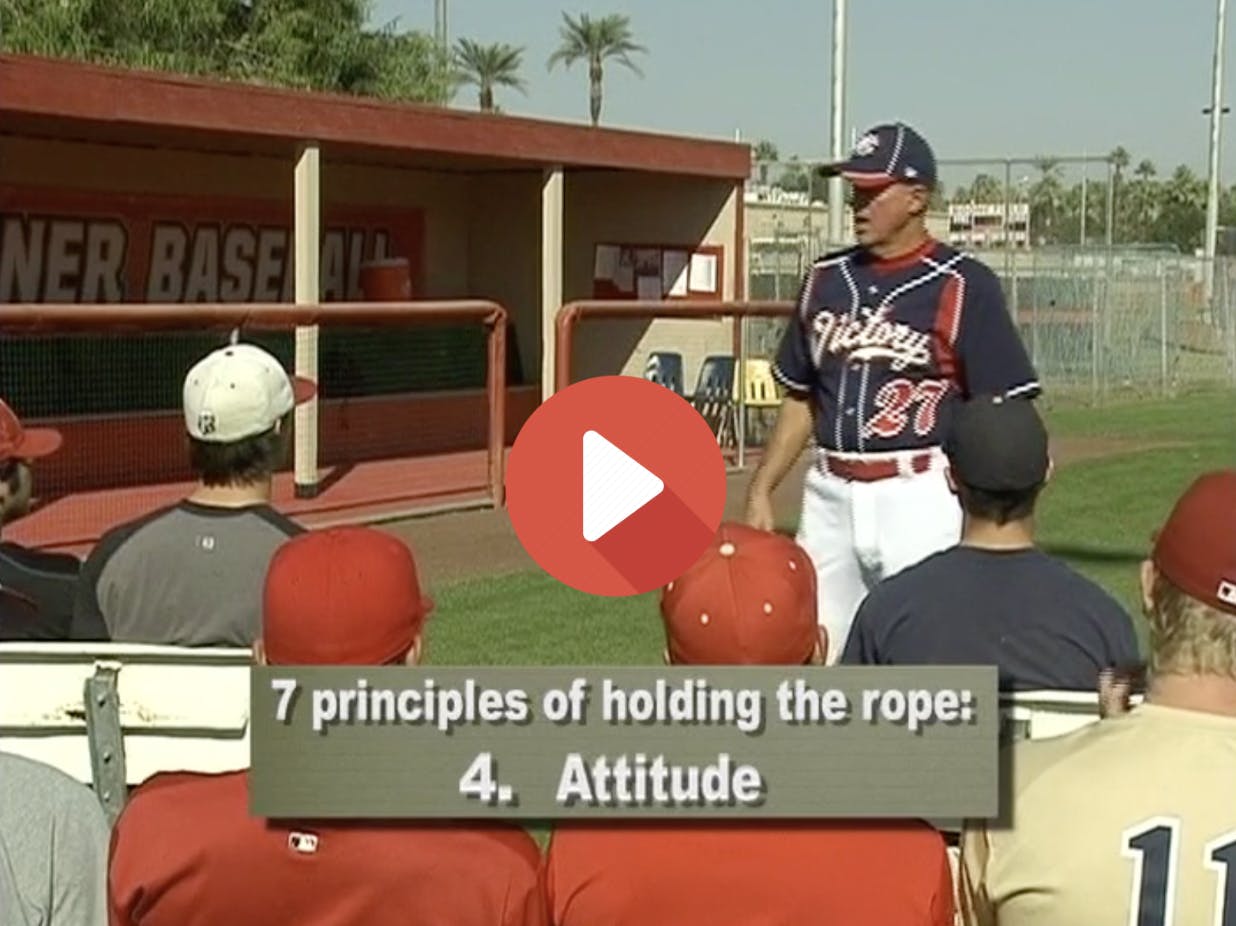Featured courses
- Understanding The Shift by Brandon Ogle
- Two Drills to Improve Outfield Movement and Communication by Grant Young
- The Ultimate Resource For Coaching Youth Baseball by Jackson Chlebowy
- Become a Master at Bunting by Brandon Ogle
- 5 Reasons Why There Is More To Good Base Running Than Just Speed by Brandon Ogle
- Three Injury-Prevention Tips For Your Offseason Pitching Program by Grant Young
- How to Teach Hitting to the Next Generation by Grant Young
- Developing Defensive-Minded Baseball Catchers by Grant Young
- 3 Baserunning Tips to Score More Runs in Baseball by Grant Young
- 5 Outfield Drills to Work on in Season by Alec Burris
- Keys For Scoring More With Runners on First and Third Base by Grant Young
- How to Develop Your Game to Become a Five-Tool Player by Brandon Ogle
- 3 Coaches Share the Keys to Running Baseball Practice the Right Way by Grant Young
- Four Drills to Sharpen a Baseball Hitter’s Vision at the Plate by Grant Young
- Four Quotes to Hit Better With Two-Strikes by Grant Young
- Four of Former MLB Pitcher Juan Nieves’ Movement-Based Pitching Drills by Grant Young
- Two Tips For Developing an Elite Baseball Bullpen by Grant Young
- Overcoming the Four Challenges of Indoor Baseball Practices Because of Weather by Grant Young
- Three Tips to Make Your Baseball Team Mentally Tougher by Grant Young
- Three Priceless Philosophies to Motivate Your Baseball Team by Grant Young
- Three Offseason Baseball Drills to Simulate Competition by Grant Young
- Three Baseball Offseason Strength and Conditioning Essentials by Grant Young
- Important Ways to Improve Your Baseball Team’s Baserunning by Grant Young
- Three Ways to Perfect Hitting Mechanics From an MLB Icon by Grant Young
- Catchers can influence pitchers...for bad or good by Drew Johnson
- Throwing Strikes and Playing Good Defense Equals Wins by Jose Ortiz
- Legendary Indiana Head Baseball Coach Bob Morgan’s Offensive Theory by Grant Young
- Tennessee Head Baseball Coach Tony Vitello on How to Practice Baserunning by Grant Young
- Three Great T-Ball Drills For Youth Baseball Players by Grant Young
- How to Manage a Baseball Pitching Staff by Grant Young
- Three Uncommon Tips to Become a Better Hitter by Grant Young
- How a Baseball Coach Can Develop Strike Throwers by Grant Young
- Drills to Develop Elite Baseball Outfielders by Grant Young
- Baseball Training Exercises to Strengthen Arm and Bat Speed by Grant Young
- How to Use Bunting to Score More Runs by Grant Young
- How To Build An Elite Baseball Infielder by Grant Young
- Three Drills to Improve Your Baseball Team's Infield Play by Grant Young
- Three Keys to Curating a Pitching Staff’s Success by Grant Young
- 3 Techniques to Develop a Baseball Player’s Hitting Approach by Grant Young
- How to Cultivate Confidence Within Your Pitchers by Grant Young
- 5 Every Day Drills To Help You Become A Better Catcher by tyler Linderman
- How to Throw A Curveball by Brandon Ogle
- How to Assemble a Lock-Down Bullpen by Brandon Ogle
- How to Throw a Sinker by Brandon Ogle
- How to be a Smart Baserunner by Brandon Ogle
- Improving a player's slugging average by Phillip Woolgar
- The 8 Fundamentals of Pitching by Drew Johnson
- How to Throw a Deceiving Changeup by Brandon Ogle
- Step Up Your Outfield Defense With These Three Drills by Jose Ortiz
- 8 Baseball Drills Every Player Should Practice by Drew Johnson
- How To Become An Elite Defensive Outfielder by Tyler Linderman
- 5 Tips For Crushing A Curveball by Johnny Grassi
- LEGENDS FOR YOUTH INCLUSION BASEBALL CLINIC by Phil
- Fourteen Ways To Turn A .300 Hitter Into A .210 Hitter by Jay P. Granat, Ph.D.
- How To Become The Ideal Leadoff Man by Brandon Ogle

Three Priceless Philosophies to Motivate Your Baseball Team
- By Grant Young
Baseball is often described as a sport that is rooted in failure. Even the best hitters fail to get a hit more often than not, and pitchers inevitably give up hits and runs. In fact, a .300 batting average, which means a player gets a hit 30% of the time, is considered excellent. This emphasis on dealing with failure is unique to baseball and requires players to develop resilience, a short memory, and mental toughness. Learning to cope with failure is a fundamental aspect of excelling in baseball and is a valuable life lesson that the sport imparts to its participants.
And because this isn’t easy to do — especially for youth baseball players, who don’t even have fully developed brains — playing baseball requires a great deal of mental strength. In addition to it being rooted in failure, the game can be mentally challenging due to its slow pace and the need to stay focused for long periods. Players need to be able to handle the pressure of performing in high-stakes situations and bouncing back from failure.
Additionally, they must be able to stay disciplined and maintain their focus throughout the entirety of the game, even when they are not directly involved in every play. Developing mental toughness is essential for success in baseball, and it can have a significant impact on a player's performance on the field.
And if there’s one person who knows how to develop mental toughness among youth and college baseball players, it’s Bob Morgan.
Coach Morgan is the former head baseball coach at Indiana University, where he directed Indiana’s baseball program for 22 seasons. Morgan led his teams during his career to a 1,070-586-6 (.646) record, making him one of 30 NCAA Division I baseball coaches in history with 1,000 career victories. In addition to serving as IU’s head coach, Morgan also worked as a professional pitcher for the Detroit Tigers.
Coach Morgan knows that getting athletes to consistently play to the best of their abilities is one of the fundamental goals of baseball coaches at all competitive levels. That’s why his ‘Motivate Your Team With These Philosophies’ course points out 3 different types of motivation, details how individuals can set and attain their goals, and also reviews the 7 principles that are essential to success in life.
Don’t Let Fear Control You
The first lesson Coach Morgan wants to instill in each of his players is about motivation. He defines motivation as, “Things that make us do the things we do. Fuel that enhances people’s performance. Stimulation that puts people in action.”
He notes that people show up to the baseball field for endless different reasons. But the most important point is that they showed up to the field for some reason, regardless of what that is. That’s a person’s motivation.
From there, Coach Morgan notes how fear is the biggest and most common motivation for all people, not just baseball players. He then claims that the word FEAR is actually an acronym: False Evidence Appears Real. His point with this is that because everybody deals with fear in one fashion or another in some facet of their lives, it’s up to people to harness that fear and turn it into a motivator rather than let it consume them and cause self-doubt.
“Fear is like fire,” Coach Morgan says. “If you control it, you can heat a house with it, and you can cook with it. If you don’t control, you can burn a house down.”
To control and learn to use that fear as motivation, a player must recognize it and see it for what it is.
Attitude

Coach Morgan notes that the easiest thing in the world to do is be negative. But if someone has a good attitude and works hard, they are going to be successful in life, no matter what they pursue.
This is an especially important approach in baseball because, as we’ve mentioned before, baseball is so rooted in failure that keeping a positive attitude can be exceedingly difficult a lot of the time. Especially when a player is in the midst of a slump or can’t seem to throw a strike to save their lives, employing a negative mindset can quickly become the default.
In addition to this, improving and developing in baseball comes down to being okay with doing minute, seemingly trivial actions daily. Players who get bored of this begin to go through the motions, which is when their progress stagnates. But players who are optimistic about getting to do what they love, and eager to improve themselves are the ones who are going to put the best effort forth — and therefore get the most out of that effort when the game begins.
Care About Winning
“It’s amazing what a group can accomplish when nobody cares about who gets the credit,” Coach Morgan says.
When Coach Morgan talks about caring to win, that doesn’t mean the attitude should be winning at all costs, and every time there’s a loss it should be viewed as a complete failure. There are going to be losses in baseball, and there are important lessons and takeaways that can be gleaned from those losses. But his point is that all players should be striving to win first and foremost, regardless of their results or impact.
And it isn’t enough to just show up to the field and want to win. There has to be attention to detail with the entire process of what it takes to win (communicating on the field, throwing strikes, putting the ball into play with two strikes, etc.) that winning is the outcome of all that hard work rather than something players and teams are just blindly striving for.



